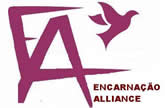Social Movement Theory
Social Movements as a study within sociology grew from US justice movements in an open democratic society with legal protections of public dissent, people opposing societal oppressions, with a strong emphasis on utilization of people power against injustices. It is informed by left wing (anarchist - see Franz Fannon) and Marxist concepts of increasing a sense of injustice to the point where oppositional action for change can be taken against those who oppress. This has often in opposition to the Christian commitment to seeking reconciliation between oppressor and oppressed, rich and poor and in the process communicating and working for justice. Ultimately the Christin view has proven morre effective. ( See Increasing Bitterness vs Reconciliatory Relationship Building).
Erich Hoffer in The True Believer gave us some seminal characteristics of such movements.
A subset of this is Saul Alinsky's Community Organizing, a process of moblizing local communities for change. He developed it as a secular Jew from the book of Nehemiah. Bob Linthicum in Empowering the Poor and other works has sought to interpret this from within an evangelical theological framework. There are many skills and processes of significant help as a church grows large enough to have peole resources to engage in community issues.
The biblical basis for this oppositonal activity to structural evil may be found in the prophets, and in small ways in Jesus. Abraham Heschel in The Prophets, has one of the most readable analyses of the nature of such prophetic activity.
Feminist and liberation movements are built on a need to voice out the millions of experieinces of oppression in order to find a sense of identity. Read Dalia Rodrigues and come to class prepared to discuss what are the options for an effective response to the deep psychological issues of whole peoples expereincing oppression. What are the Biblical responses?
Some student summaries of social movement leaders:
- Sajira: Jose Rizal of the Philippines
- Jacob Graham: Manny Pacquiao
- Shannon Olsen: Mother Teresa
- Kim Farnham: Lula do Brasil
- A Case Study: MMP Philippines
Activities
- Review Biographies of Social Movement leaders
- Identify key elements in the theory and practice of Global Social Movements. Evaluate against Biblical norms.
- Contrast social movement dynamics vs revival movements.
- Social Movements (ppt) review and Revise.
Learning Outcomes
Students can contrast social movement theory with church growth or transformational movement theory principles
Readings
Agoncillo, Teodoro A. (2002). The revolt of the masses: the story of Bonifacio and the Katipunan. Quezon City. The University of the Philippines Press.
Dobson. (201) What Works in Social Movements. The Citizen's Handbook: A Guide to Building Community in Vancouver. http://www.vcn.bc.ca/citizens-handbook August 2001.
Grigg, Viv (2010). Rage. The Spirit of Christ and Postmodern City. Emeth Press.
Freston, P. and NetLibrary Inc. (2008). Evangelical Christianity and democracy in Latin America. Oxford ; New York, Oxford University Press
Heschel, A. J. (1962). The Prophets. New York, Harper & Row.
Martha Strittmatter Tempesta. (2002). Learning Leadership in Social Movements
Hoffer, E. (1951). The True Believer. New York and London, Harper & Row.
Linthicum, R. C. (1991). Empowering
the Poor. Monrovia, Calif., Marc.
Mandela, N. (1994). Long Walk to
Freedom : the Autobiography of Nelson Mandela. London, Little, Brown.
Maathai, W. (2008). Unbowed: a memoir. London: Arrow.
Morris, Aldon and Suzanne Staggenborg. (2002) Leadership in Social Movements.
Nepstad, S. E. and C. Bob (c2007). "When Do Leaders Matter? Hypothese on Leadership Dynamics in Social Movements." Mobilization: An International Journal 11(1): 1-22 11(1): 1-22.
Piven, F. F. and R. A. Cloward (1979). Poor People's Movements : Why They Succeed, How they Fail. New York, Vintage Books.
Rodriguez, Dalia (2006) Unmasking Identity: Healing Our Wounded Souls. Qualitative Inquiry 2006; 12; 1067.
